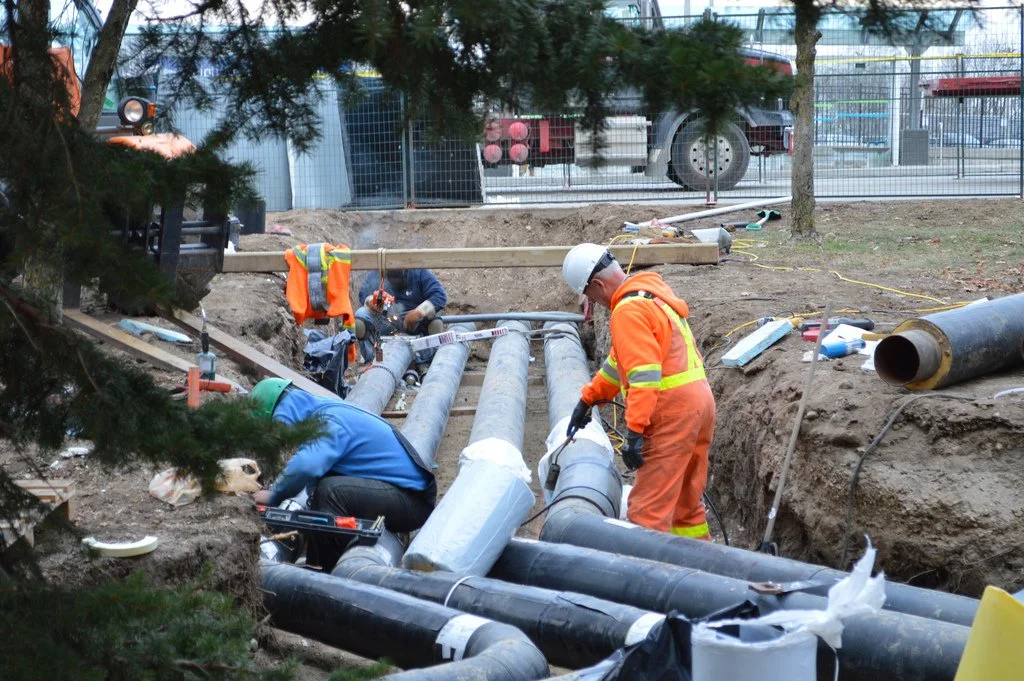Cascara’s R744 Thermal Networks utilize a unique heat transfer medium to create a highly efficient HVAC system. We reduce energy use for heating and cooling buildings up to 70%; significantly reducing carbon emissions and operational costs.
How does it work?
Cascara utilizes the unique chemical properties of R744 as a heat transfer medium along with our technological mix of innovative technology to efficiently deliver both heating and cooling demands simultaneously, from single clients to full district energy systems.
Cascara’s solution is designed to effectively remove low-grade waste heat & transmit it to where it can be reused. This reduces electricity needed for cooling and can eliminate polluting energy inputs for heat. (i.e. hot water, space heating, etc.)
Why Carbon Dioxide Based REfrigerant (R744)?
Use of CO2, also known as R744 refrigerant, as a thermal energy transport media unlocks more opportunities for reducing energy consumption. More efficient than steam or glycol; therefore, can carry thermal energy greater distances with less loss. If you ruled out thermal energy networks for your facility in the past, it may be feasible with Cascara. Contact us for more info.
Operating in Guelph, ON
Since 2022, Cascara has been the owner and operator of the Guelph District Energy system and has since transformed it into an efficient, profitable District Energy system ready to scale with integrated client nodes.
Project Development
District Energy & Industry
Cascara is set to transform community heating by utilizing waste heat in the operating DES network. This approach will replace natural gas heating in the nearby industrial park, significantly advancing Ontario’s decarbonization agenda. The project exemplifies a practical step towards eco-friendly heating, contributing directly to Ontario's vision of a sustainable, decarbonized future.
Hotels & Resorts
To be developed in collaboration with a soon to be announced partner, Cascara Energy's R744 Thermal Network will towards the Dominican Republic's COP28 Cooling Pledge. Recycling waste heat from resort chillers will lead to substantial reductions in energy consumption, GHG emissions, water usage, and operational costs. Benefits include improved humidity control, mitigation of urban heat island effects, enhanced grid stability.
Multi-unit Residential
Cascara has an HVAC maintenance agreement with several multi-unit residences in the heart of Toronto, Canada. Retrofit projects are planned to harvest the waste heat from the building chillers to reduce natural gas use for hot water. Development is expected to be pursued in 2025.
Subway Stations
Selected by the Partnership for New York City, Cascara is conducting feasibility and project development studies to evaluate the economic and social impact of its solution to mitigate and monetize excess heat in New York City’s metro stations. This will improve rider comfort and create revenue from nearby heat off-takers.









